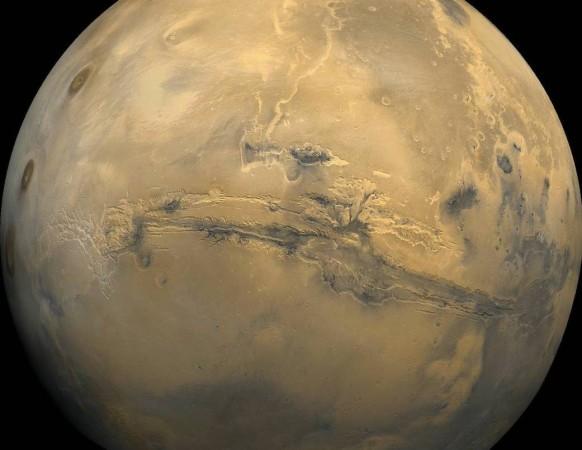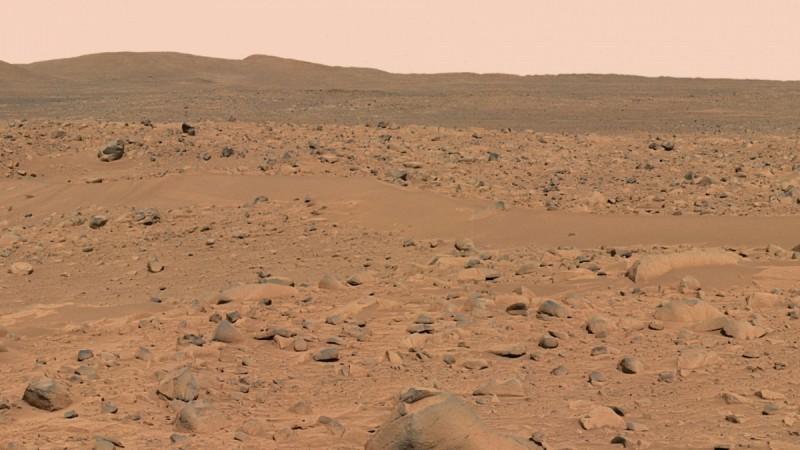
Landslides are scary, but they can be even scarier when they occur on the Martian surface. A new study has revealed that vicious landslides on Mars could travel at a speed of nearly 713 kilometres per hour, which is significantly faster than that of landslides on the Earth.
The sheer power of a landslide can be weighed from the depth and length of its runout, meaning that the longer a landslide goes, the more powerful it gets. The new study, by Fabio Vittorio De Blasio and Giovanni Battista Crosta of the University of Milano-Bicocca in Italy, revealed that landslides on the Red Planet typically have a long runout ranging between 2 and 20 kilometres.
According to the scientists, there is ice under the soil and the rock slopes on Mars that may have been an important medium of lubrication of landslides on the planet that can hit a tremendous speed of 198 metres per second, or nearly 713 kmph. Smaller landslides can reach a speed of 150 metres per second, or 540 kmph.
"Landslides on Mars exhibit features such as steep collapse, extreme deposit thinning, and long runout. We study the flow dynamics of Martian landslides particularly in Valles Marineris, where landslides are among the largest and longest," scientists said in the study, adding that they had used remote sensing measurements to unearth the presence of ice under Valles soil.

For those unaware, Valles Marineris -- which NASA calls The Grand Canyon of Mars -- is the largest canyon in the solar system. It is 3,000 kilometres long, 600 kilometres wide and as much as 8 kilometres deep while the Earth's Grand Canyon in Arizona is 800 kilometres long, 30 kilometres across and 1.8 kilometres deep.
Although the origin of the Valles Marineris still remains unknown, a leading hypothesis for its formation is that it started as a crack billions of years ago as the planet cooled. According to the new study, a large number of landslides -- often as old as three billion years or older -- punctuate the slopes and the bottom of the Valles Marineris chasms.
"The main purpose of this work is to better understand the dynamics of the landslides on Mars, and how this information can lead us to a better characterization of the deposition environment," scientists said.
The study, however, clearly suggests that Mars can be extremely destructive with its violent landslides that can overpower their Earthly counterparts by a huge margin.












!['Had denied Housefull franchise as they wanted me to wear a bikini': Tia Bajpai on turning down bold scripts [Exclusive]](https://data1.ibtimes.co.in/en/full/806605/had-denied-housefull-franchise-they-wanted-me-wear-bikini-tia-bajpai-turning-down-bold.png?w=220&h=138)
![Nayanthara and Dhanush ignore each other as they attend wedding amid feud over Nayanthara's Netflix documentary row [Watch]](https://data1.ibtimes.co.in/en/full/806599/nayanthara-dhanush-ignore-each-other-they-attend-wedding-amid-feud-over-nayantharas-netflix.jpg?w=220&h=138)



